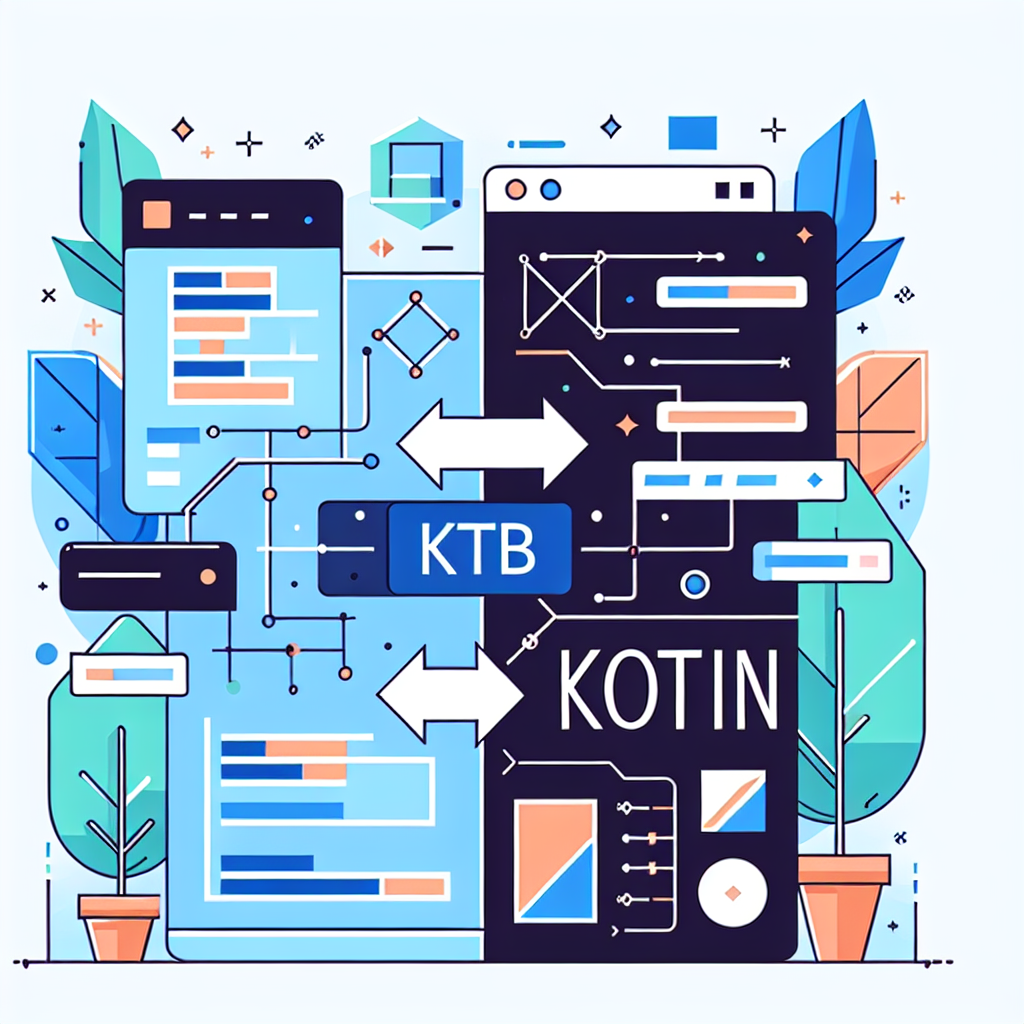Convert Visual Basic .NET to Kotlin Easily Online
Effortlessly convert Visual Basic .NET to Kotlin with our intuitive tool. Boost productivity with seamless code transformation. Try it now for quick results!
Source Code
Converted Code
Output will appear here...
Transform your Visual Basic .NET code seamlessly into Kotlin with our advanced conversion tool. Perfect for developers migrating to modern mobile and web applications, this tool ensures efficient code translation while maintaining functionality and performance. Experience streamlined workflows and increased productivity with our intuitive, user-friendly interface.

Visual Basic .NET to Kotlin Conversion Tool Link to this section #
The Visual Basic .NET to Kotlin conversion tool is designed to streamline the migration process from VB.NET to Kotlin, catering to developers seeking efficient cross-platform solutions with Kotlin's modern programming features.
Key Features Link to this section #
- Automated Code Conversion: Effortlessly convert VB.NET syntax to Kotlin, reducing manual translation errors and saving time.
- Syntax Mapping: Accurately map VB.NET constructs to Kotlin equivalents, such as loops, conditionals, and classes.
- Cross-Platform Compatibility: Leverage Kotlin's interoperability with JVM and Android, expanding your application's reach.
Why Convert to Kotlin? Link to this section #
- Modern Language Features: Kotlin offers null safety, extension functions, and concise syntax, enhancing code quality and readability.
- Interoperability: Kotlin's seamless interoperability with Java and its compatibility with Android makes it ideal for modern application development.
- Community and Support: With a growing community and robust support, Kotlin is backed by JetBrains and Google for Android development.
Example Code Conversion Link to this section #
Below is an illustration of converting a simple VB.NET function to Kotlin:
VB.NET:
Function AddNumbers(a As Integer, b As Integer) As Integer
Return a + b
End Function
Kotlin:
fun addNumbers(a: Int, b: Int): Int {
return a + b
}
Getting Started Link to this section #
- Prepare Your Code: Ensure your VB.NET code is well-documented and organized for smoother conversion.
- Use the Tool: Input your VB.NET code into the tool and receive Kotlin output.
- Review and Optimize: Check the converted code for any necessary optimizations or adjustments.
Resources Link to this section #
- Kotlin Documentation for comprehensive language features.
- JetBrains Kotlin Guide for best practices and advanced tutorials.
Utilize the Visual Basic .NET to Kotlin tool to harness the power of Kotlin's modern programming paradigms, while ensuring a seamless transition from your existing VB.NET applications.
Frequently Asked Questions
What are the main differences between Visual Basic .NET and Kotlin?
Visual Basic .NET is a programming language developed by Microsoft, primarily for building Windows applications. It operates within the .NET framework. Kotlin, on the other hand, is a statically typed programming language developed by JetBrains, primarily for Android development but also for server-side and web applications. Kotlin runs on the Java Virtual Machine (JVM) and is interoperable with Java, while Visual Basic .NET is designed to work seamlessly with other .NET languages.
How can I migrate a project from Visual Basic .NET to Kotlin?
Migrating a project from Visual Basic .NET to Kotlin involves several steps. Firstly, analyze the project requirements and dependencies to ensure they can be supported in Kotlin. Next, translate the code logic manually since there are no direct automated tools for conversion between these languages. Consider re-architecting the application to fit Kotlin's paradigms, such as using object-oriented and functional programming features. Finally, thoroughly test the converted application to ensure it functions as expected.
Are there any tools available to assist in converting Visual Basic .NET code to Kotlin?
Currently, there are no direct tools specifically designed to convert Visual Basic .NET code to Kotlin. The process typically requires manual translation due to the different architectures and paradigms of the two languages. However, general code analysis and refactoring tools can help simplify the process, and using IDEs like IntelliJ IDEA can assist in managing Kotlin projects effectively.